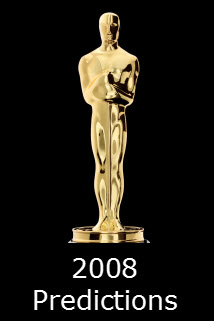Vicky and Woody and Francois: On Woody Allen's Vicky Cristina Barcelona

Content by Tony Macklin. Originally published on November 1, 2008 @ Bright Lights Film Journal.
In 2008, cinema is mostly moribund, mired in CGI and slacker mentality, with an assembly line of remakes and sequels. One awaits Citizen Kane with Seth Rogen.
Today a resounding work of art seems improbable if not impossible, but despite all the trends against it, Woody Allen's Vicky Cristina Barcelona is a work of art that dazzles while it intrigues. Vicky Cristina Barcelona doesn't go back 46 days for its influence; it goes back 46 years for its inspiration.
A major key to unlock Vicky Cristina Barcelona comes from Francois Truffaut's classic Jules and Jim (1962). Keeping Jules and Jim in mind while watching Woody's film makes the viewer aware of sights and visions that might otherwise be passed over. In Vicky Cristina Barcelona, Woody does an exceptional thing -- he uses Truffaut's masterpiece as a springboard for his own vision, and it soars. This is not a remake of the Truffaut film, but like Bergman's influence on Woody's stark Interiors (1978), Jules and Jim is a potent source. Woody uses the spirit and style (even an iris) of Truffaut's film to wondrous effect.
Like Jules and Jim, Vicky Cristina Barcelona is about commitment, fractured relationships, the confused search for identity, and the shifting, unsettling nature of love. Woody doesn't exhibit the absurdity of Jules and Jim, but like Truffaut he is a fatalist. And he shows that we mortals try to avoid the opportunities that fate decrees and may suffer the consequences, which lets him explore the bleak side of romantic comedy.
Vicky Cristina Barcelona is the story of two young women from New York who travel to Barcelona for the summer to stay with the older relatives of one of them. Vicky is engaged to be married and goes to Barcelona pursuing research for her thesis on Catalan culture. She is the sensible, rational, careful one.
Her friend Cristina (Scarlett Johansson) is getting over her latest romantic fling. She's a would-be free spirit. Like many of us, she doesn't quite know what she wants, but she knows what she doesn't want.
Cristina and Vicky observe painter Juan Antonio (Javier Bardem) at an art gallery and are told that he recently had a divorce after many physical brawls with his fiery wife, Maria Elena (Penelope Cruz). Later that night, fate brings Vicky, Cristina, and Juan Antonio together when they are in the same restaurant. He approaches the two women and offers to take them to the provincial town of Oviedo for a weekend of sightseeing, great food, and sex. Vicky dismisses him, but Cristina is intrigued. The trio take the trip, although Vicky remains uninvolved.
Cristina goes to bed with Juan Antonio, but before anything can happen, she is struck by food poisoning. Oh, fickle fate! With Cristina ill and bedridden, Vicky and Juan Antonio become friends and -- for one night -- lovers. That one night changes Vicky's life forever; she now has options that she never imagined. But she still goes through with her marriage, when her fiancé Doug (Chris Messina) insists that he come to Barcelona for a sudden ceremony. Meanwhile Cristina moves in with Juan Antonio, and when his ex-wife tries to commit suicide, he has her move in, too.
The relationships ebb and flow, crash and float. If all this sounds too antic and manipulated, it's not; Woody creates a smooth, fateful fable.
This script is as literate a one as we'll probably see this year. The characters have many different facets, and are all very human. The character of Juan Antonio could be problematic, because he's a hedonist. But he has a conscience, and he tries to be decent. He doesn't want to hurt others, but it's also obvious he doesn't want to be hurt himself, which is why he stops pursuing Vicky when she is going to be married.
Woody has also created a tricky character in Cristina, who is open to experimenting -- she's even delighted by her participation in a ménage a trois in Barcelona. But Cristina is also unsure of herself; she sadly admits that although she has tried many things, she isn't an artist as Juan Antonio and Maria Elena are. She yearns to be an artist, but realizes she's not gifted. Juan Antonio and Maria Elena recognize talent in Cristina's photography and help her to be more creative. The relationship between the three of them -- like the three in Jules and Jim -- is positive for a while. Juan Antonio and Maria Elena realize that Cristina is the element that makes their own relationship work, but eventually Cristina decides she must go another way.
The character of Vicky embodies everyman or everywoman, since she is the one who faces the choice between taking a reckless chance or not. The audience members may not have experienced a ménage a trois, but most of us have faced a major -- perhaps life-changing -- choice in love. In that way, Vicky Cristina Barcelona is universal. Despite its exotic elements, the film relates to a basic human condition we all share.
The acting is first-rate. Rebecca Hall, the daughter of esteemed British theater and film director Peter Hall, is ideal as Vicky. Although British, she evinces American aplomb, slipping warily between confidence and doubt. Scarlett Johansson captures the intrepid, occasionally callow Cristina. It's a difficult role.
Woody was lucky that it seems Penelope Cruz always falls in love with her leading man (Bardem and Cruz are reportedly engaged at this writing), because the sparks and banter between them add a reality to the hysteria. Patricia Clarkson shines as the incomplete woman who missed her chance and tries to live vicariously through Vicky.
Doug Messina's fresh and confident Doug lives comfortably in a wired world. He's always accompanied by his trusty cell phone. He's genial but shallow -- he smugly disparages the wedding gift of one of Juan Antonio's paintings as "a Rorschach blot." Will Vicky ultimately choose the cell phone or the painting?
Like Jules and Jim, Vicky Cristina Barcelona is technically marvelous. Like the settings in Truffaut's film, those in Vicky Cristina Barcelona are diverse and evocative -- the Gaudi architectural designs, the Miro Museum, and the twisting streets all create a feast of local color. Like Raoul Coutard's cinematography, Javier Aguirresarobe's is exquisite. Like Georges Delerue's music, Guilia y Los Tellarini's score is lilting and lyrical.
The correlation between Jules and Jim and Vicky Cristina Barcelona is profound.
What do Christopher Evan Welch and Michel Subor have in common? Each narrates his or her respective film. Many reviewers have balked at the narration in Vicky Cristina Barcelona -- some hated it. Maybe since it's not the oh-so-familiar, mellifluous tones of Morgan Freeman, they were jarred. But the narration is the first thing that alerts us to the connection with Jules and Jim. It's detached and matter-of-fact -- like the voice of Fate.
In Vicky Cristina Barcelona fate is constant: the meeting at the restaurant; the illness of Cristina; a foot touching the wrong foot under a table; the accidental meetings of Vicky and Juan Antonio; Vicky's seeing Judy kissing her husband's partner, which leads to intimate conversation between the two women; the wounding of Vicky, which leads her to further lies. Fate has a busy time here.
Woody also shares Truffaut's sense of the folly of communication. In Jules and Jim it was correspondence by letter that was folly. In Vicky Cristina Barcelona cell phones are the objects that convey transitory and misleading communication. Vicky stops saying, "I love you" at the end of her calls to Doug. As love ebbs and flows, lies flow.
Cristina is no match for Jules and Jim's Catherine (Jeanne Moreau). Who could be? She tries to be free, but unlike Catherine she is not willful. The character who most embodies willfulness is Maria Elena, who is beautiful, moody, raging, impulsive, and self-destructive. The visions of Woody Allen and Francois Truffaut merge. In the airport in Vicky Cristina Barcelona, like Jules walking downhill, Vicky and Cristina are returning to the world of normalcy.
Is life a sigh of passion, of relief, or of resignation?
Vicky Cristina Barcelona restores our faith in movies. It blessedly avoids self-indulgence -- sometimes a pitfall for Woody. For years his films have seemed uninspired, but Truffaut has inspired him once again. Vicky Cristina Barcelona is in no way a step-by-step reflection of Jules and Jim. It's very different, but both movies share a similar auteur soul. Both shimmer with lasting, provocative life.







